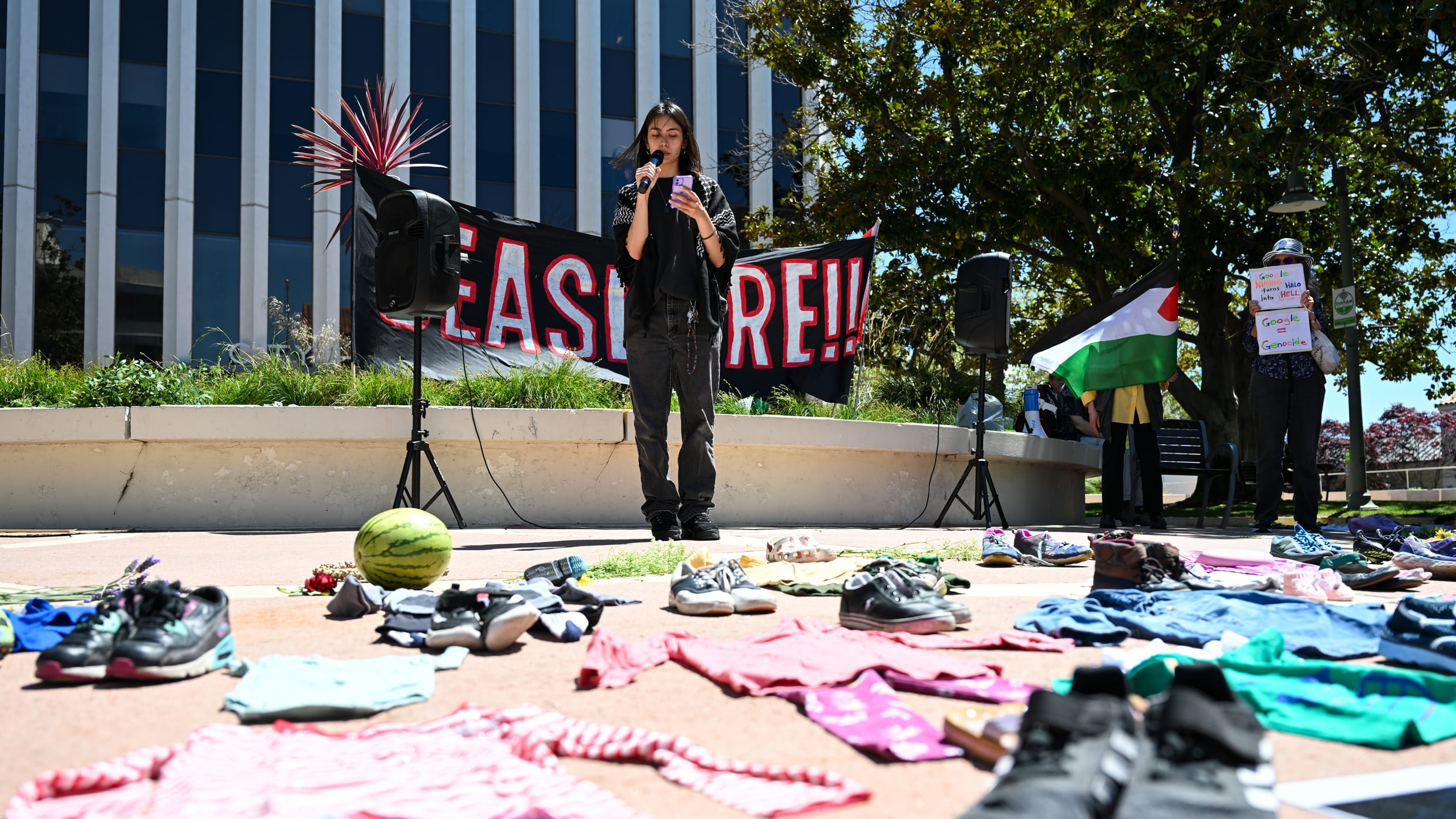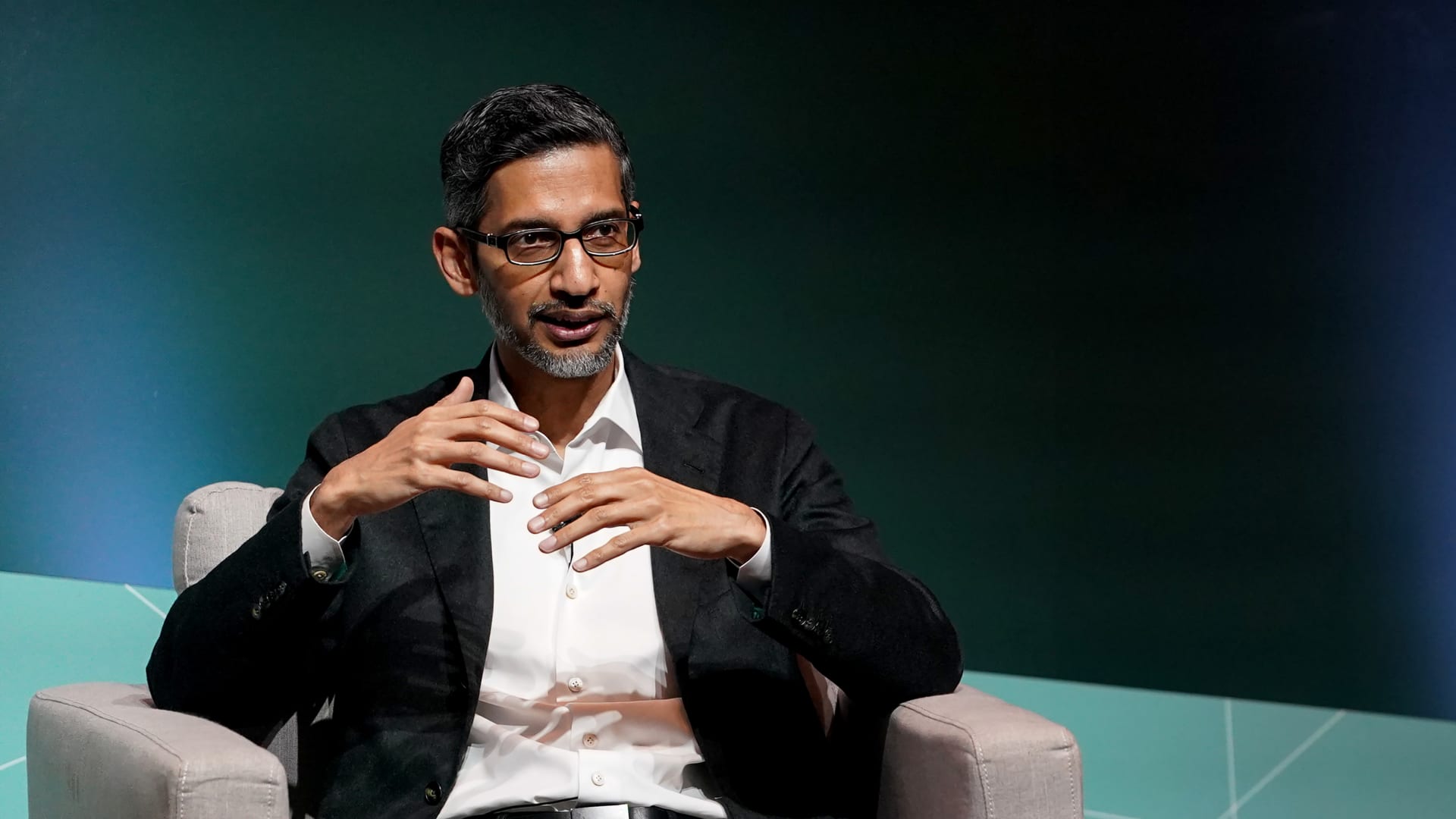In the span of a week, Google has reportedly fired about 50 employees over protests of its cloud computing contract with the Israeli government. The move came after dozens of employees participated in demonstrations and sit-ins at Google’s offices in New York and California last Wednesday, during a day of action organized by the group No Tech for Apartheid, which has spoken out on this issue since 2021. A handful of protesters were arrested on trespassing charges in both New York and Sunnyvale, California, where they spent over nine hours in the office of Google Cloud CEO Thomas Kurian.
The crux of the protests was the company’s continued involvement in Project Nimbus, a $1.2 billion contract through which Google and Amazon provide artificial intelligence and cloud services to the Israeli government. Google workers had previously spoken out about the contract, which was signed in 2021; former employee Ariel Koren resigned in 2022 after leading the initial opposition to Project Nimbus, claiming Google had retaliated against her.
But the war in Gaza has pushed the issue to the forefront yet again and inflamed tensions within the company. Last month, a Google Cloud employee was fired for interrupting a keynote speech by the head of the company’s Israel business to protest Project Nimbus, and an internal message board was reportedly shut down when employees started criticizing the company’s contracts with the Israeli military.
Google’s forceful response to the most recent protests raises questions about the extent to which employees are protected when they bring political dissent into the workplace. For the private sector workers who are employed by Google, the short answer is: not much.
“This [protest] is morally commendable but legally complicated because it doesn’t really involve the terms and conditions of the work,” says Cliff Palefsky, a California-based employment lawyer. Under labor law, it could qualify as protected activity if employees were protesting against their working conditions—but even in a situation where that was the case, Palefsky says, there are restrictions on how workers can protest. “If [your employer] said you’re not allowed to discuss working conditions, you can be insubordinate,” he says. “But if someone says you must leave the office, or you must get back to work during business hours, that kind of protection doesn’t extend that far.”
The laws governing private sector jobs vary from state to state, though at-will employment is the “overarching principle of employment,” as Palefsky puts it, in nearly every state. (Montana is the sole exception to this rule.) In states like California, there are clear protections for workers who engage in political protest—but only when it takes place outside of work. As private sector workers, the Google protestors “don’t really have constitutional rights to free speech in the workplace,” according to Cathy Creighton, director of the ILR Buffalo Co-lab, an extension of Cornell University’s School of Industrial and Labor Relations.
After the second round of terminations this week, Google has claimed in statements to have “confirmed and reconfirmed” that every fired employee was “personally and definitively involved in disruptive activity inside our buildings.” No Tech for Apartheid, however, has said otherwise; workers have claimed that Google fired some people who either didn’t participate in the sit-in or complied when asked to leave the office. But legal experts say this distinction isn’t necessarily relevant.
“People really can’t wrap their minds around this idea that you don’t have rights in the workplace,” says Creighton, who used to work at the National Labor Relations Board and found that private sector employees who called the agency often didn’t understand the limits of their workplace protections. “You’re allowed to be fired for a good reason, a bad reason, or no reason,” she says. “You could be fired for wearing purple socks. There’s nothing illegal about that.”
Google needs little justification to terminate the employment of any worker, let alone workers who stage a sit-in protest—something the company has noted in its public comments on the matter. (In statements to the press, a company spokesperson has said that “physically impeding other employees’ work and preventing them from accessing our facilities is a clear violation of our policies.”) Employees who are covered by a collective bargaining agreement, on the other hand, can negotiate just cause—a common clause in union contracts that protects workers against retaliation and other unfair termination. While some Google workers are represented by the Alphabet Workers Union, there is no contract in place to protect them.
According to Palefsky, there might be some room for legal maneuvering if workers can argue that their employer has previously allowed or encouraged this type of dissent. If a company itself has somewhat generous policies on the matter, you might be better protected. “On a case-by-case basis, you may be able to come up with a theory,” he adds. “But it seems to me that if you’re sitting in someone’s office, and they say you need to leave now—to the point where they need to call police to arrest you—you’re not going to have a lot of legal protection.” The workers behind No Tech for Apartheid have tried to argue that their protest also touches on labor conditions, citing the unfair treatment that pro-Palestinian employees have allegedly faced.
The protests and their aftermath are another inflection point for Google, whose famously open culture has grown increasingly strained in recent years, as the company has become a hotbed for worker activism. “Google has really tried to encourage a political consciousness and debate and dialogue, for better or worse,” Palefsky says. ‘I think they’re realizing that this is just creating endless problems for them.”
Google’s swift decision to fire these employees seems to be part of a broader shift, as the company has cracked down on vociferous critics and scaled back its all-hands meetings in recent years. Google CEO Sundar Pichai seemed to say as much in a company memo from last week. “We have a culture of vibrant, open discussion that enables us to create amazing products and turn great ideas into action,” he wrote. “But ultimately we are a workplace and our policies and expectations are clear: this is a business, and not a place to act in a way that disrupts coworkers or makes them feel unsafe, to attempt to use the company as a personal platform, or to fight over disruptive issues or debate politics.”
The firings might have a chilling effect, with some employees even choosing to resign—or not. “It could go one of two ways,” Creighton says. “It usually cows employees into submission. [But] the other thing it could do is galvanize the workforce.”
Recognize your brand’s excellence by applying to this year’s Brands That Matter Awards before the early-rate deadline, May 3.







